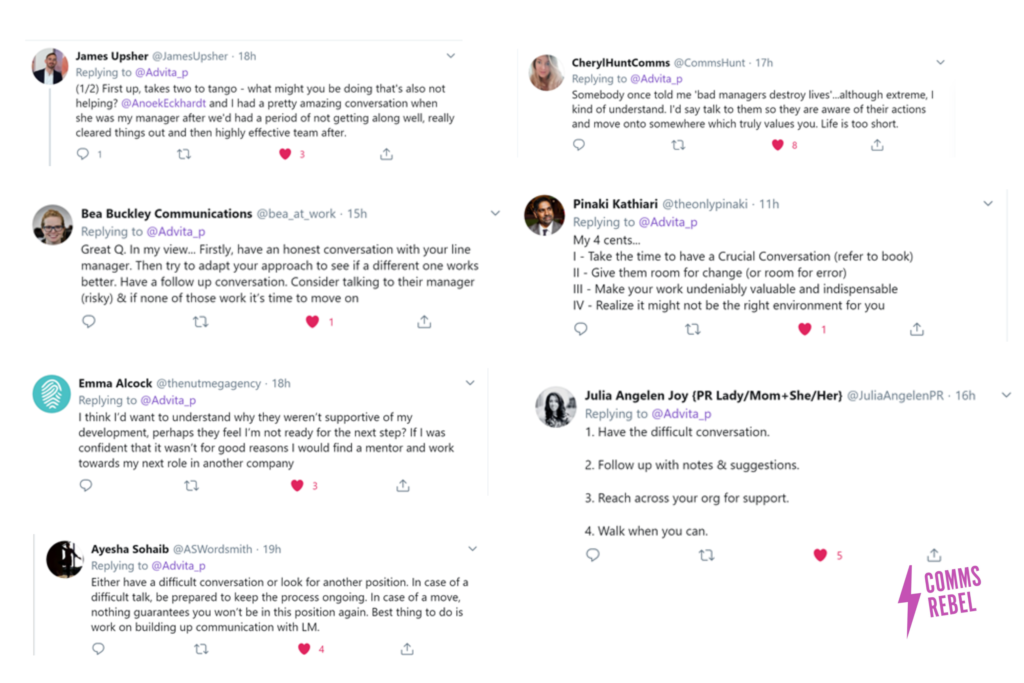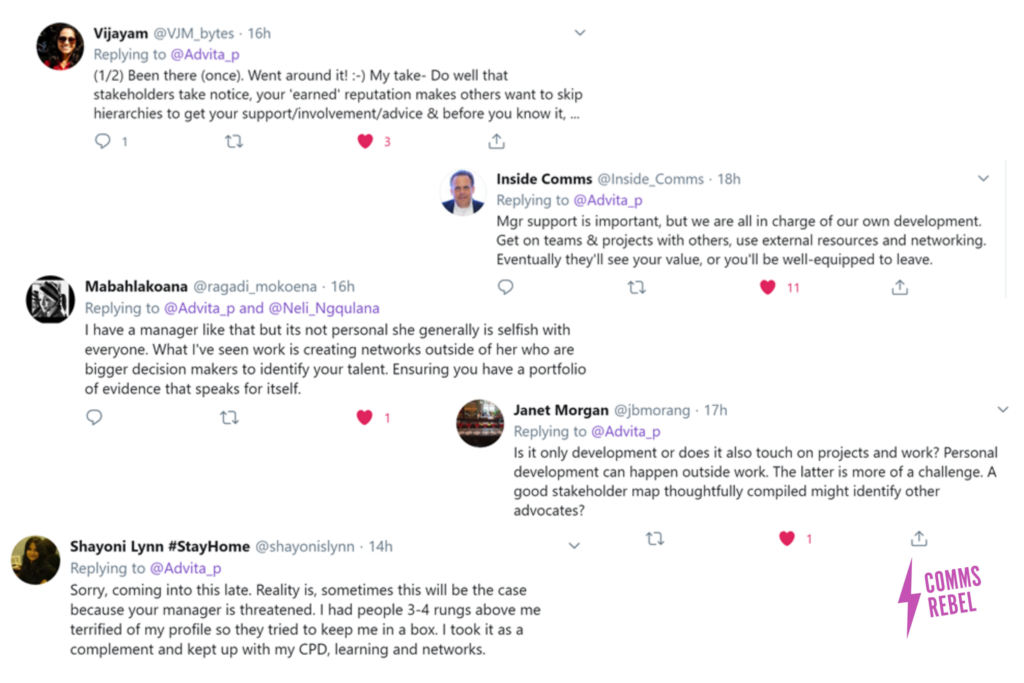Hands up if you have had to deal with a line manager who has been a bit challenging? Sadly, it’s not a unique situation. There’s a reason why Hollywood decided to invest millions developing a story line about Horrible Bosses, not only once but TWICE.
Regardless of what level you are in your organization, you will have a line manager or someone that oversees the work that you do (unless you own the business). Line managers play a big part in shaping who we are and how we develop in our careers. For some, the role comes naturally, but for others, it can be a challenge, particularly if they have been promoted more for their technical ability rather than people management.
I’ve spoken to countless people who have struggled with their relationship with their manager, and ultimately they’ve chosen to leave the organization due to poor relations or worse it’s had a detrimental impact on their mental health . We all know most people work for their manager, not the organization. If your manager is treating you poorly, no level of incentives, benefits and pay will make you want to stay at an organization. It’s important you find harmony in your workplace and you’re working in an organization that nurtures your talent.
So what do you do when you have a rubbish relationship with your line manager, and they are treating you poorly? I asked my wonderful Twitter community to share their advice, and below I’ve collated some of their responses, read on to find out more!
Find a sponsor/mentor
A few respondents shared this advice. If you’re not getting the support from your line manager, then find someone in the organization that will give you additional support – a sponsor. Ask someone that you respect (and preferably not friends with) and explain to them what you want to achieve in terms of development. Try and avoid going down the ‘they said, and they did’ route, stick to facts and at you hope to gain from the relationship.
If you can’t find a mentor internally, then look around your community. Is there anyone that you’re connected with that can support you? You’ve got nothing to lose by asking. If you’re a member of a professional body, then check to see if they have a mentoring programme.

Step into a difficult conversation
Often all it takes is an honest, open conversation about how you’re feeling. When I’m struggling with someone, I offer to take them for a coffee/tea (something my old line manager taught me). Sometimes it’ll be down to a misunderstanding and having a chat about how you’re feeling can rectify the situation before it gets worse. Try to share how they make you feel without going into attack mode. Brené Brown talks about rumbling conversations and to ask questions that can help bring more grounded confidence, e.g. “Can you help me understand…”, “I’m wondering….”, “Tell me more…” etc

Speak to HR
Sometimes you might need a third party intervention, especially if you’re treated differently than your colleagues. In this instance, make sure you have kept a record of any incidents you have experienced. This will help take the emotion out of the situation as it will be based on facts, and facts can be challenging to argue with. If it’s purely a personality clash, then HR can often be the mediators, and they will help support the conversation.

Build your portfolio and network
Sadly you might be in a situation where your line manager doesn’t want you to out-do them so they will block your progression. In this case, it’s important you use your annual leave and spare time wisely. Keep track of the great work you’re doing in the organization and save the feedback, also make sure you’re continuously developing by updating your CPD. If cost is an issue, then there are plenty of free resources, e.g. blogs, articles, webinars, tutorials that can help you build on your experience. Connect with people online and think about starting a blog (as long as it isn’t related to the work you’re doing, then there shouldn’t be any challenge).

Find a new opportunity
If you’re not being treated fairly and you’ve tried every avenue, then the only option may be to exit. However, this isn’t for everyone, and it’s something that needs to be thought about carefully. Before you decide to leave, make sure you have a proper exit strategy. What are your circumstances? How far can you travel for work? What’s the job market like? Can you afford not to work for a few months? If you have debt, mortgage to pay and mouths to feed then you definitely need to plan your exit properly, and I highly recommend you don’t leave until you have something lined up. Ultimately you need to do what is best for you and your mental health. Speak to people and reach out to those in your network to seek their counsel as they’ll (hopefully) offer an unbiased viewpoint.

I hope this helped some of you but if you want to know more or need some additional help then feel free to get in touch via advita@commsrebel.com.
If you have more tips and advice to share then please drop me a message via Twitter @advita_p.


